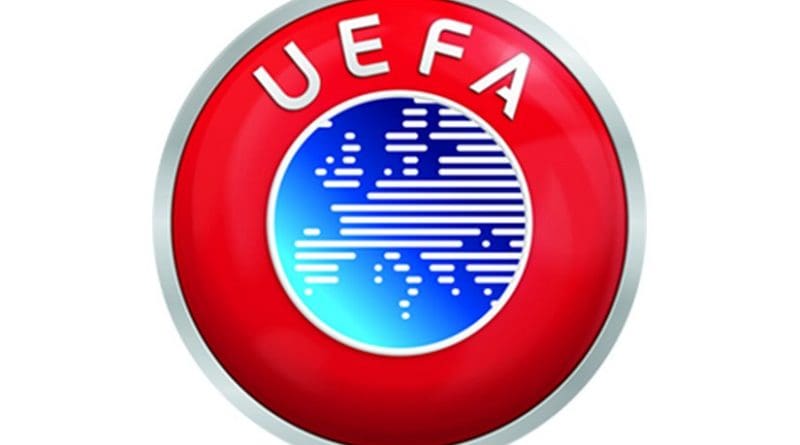UEFA Bans Albania’s Skenderbeu For Match-Fixing
By Gjergj Erebara
UEFA has banned Albania’s most successful football team for ten years for organizing a large-scale betting scam, and fined it one million euros.
UEFA’s ethics and disciplinary body has banned Albania’s top soccer team Skenderbeu for ten years and fined it a million euros after finding it guilty of running a large-scale betting scam following a two-year investigation.
The March 21 ruling was supposed to be secret but was leaked to the Albanian media and was accepted by the president of the team, Ardjan Takaj, who is also accused of being the mastermind behind the match-fixing scam.
Speaking in Tirana, Takaj acknowledged the decision and said the team would appeal to the Court of Arbitration in Sport. He expressed hopes that the decision will be reversed. “We are clean,” Takaj said.
Skenderbeu has won five championships since 2011 in Albania and qualified for the UEFA Champions League beyond the preliminary phase in 2015, becoming the first Albanian team to achieve such a feat.
However, Skenderbeu’s luck has not lasted since UEFA’s Betting Fraud Detection System in meantime flagged about 50 matches that it suspected were fixed.
Inspectors from the Ethics and Disciplinary Body filled a 93-page report in February exposing a scam that had lasted several years.
According to the report, players stopped playing in crucial game, deliberately allowing goals, enabling gamblers to scoop large rewards.
Following publication of the report, UEFA announced that its inspectors had received death threats.
“UEFA Disciplinary Inspectors working on this case have received anonymous death threats, presumably intended to intimidate them and stop them carrying out their work. These threats will not succeed and the police have also been informed,” it said.

